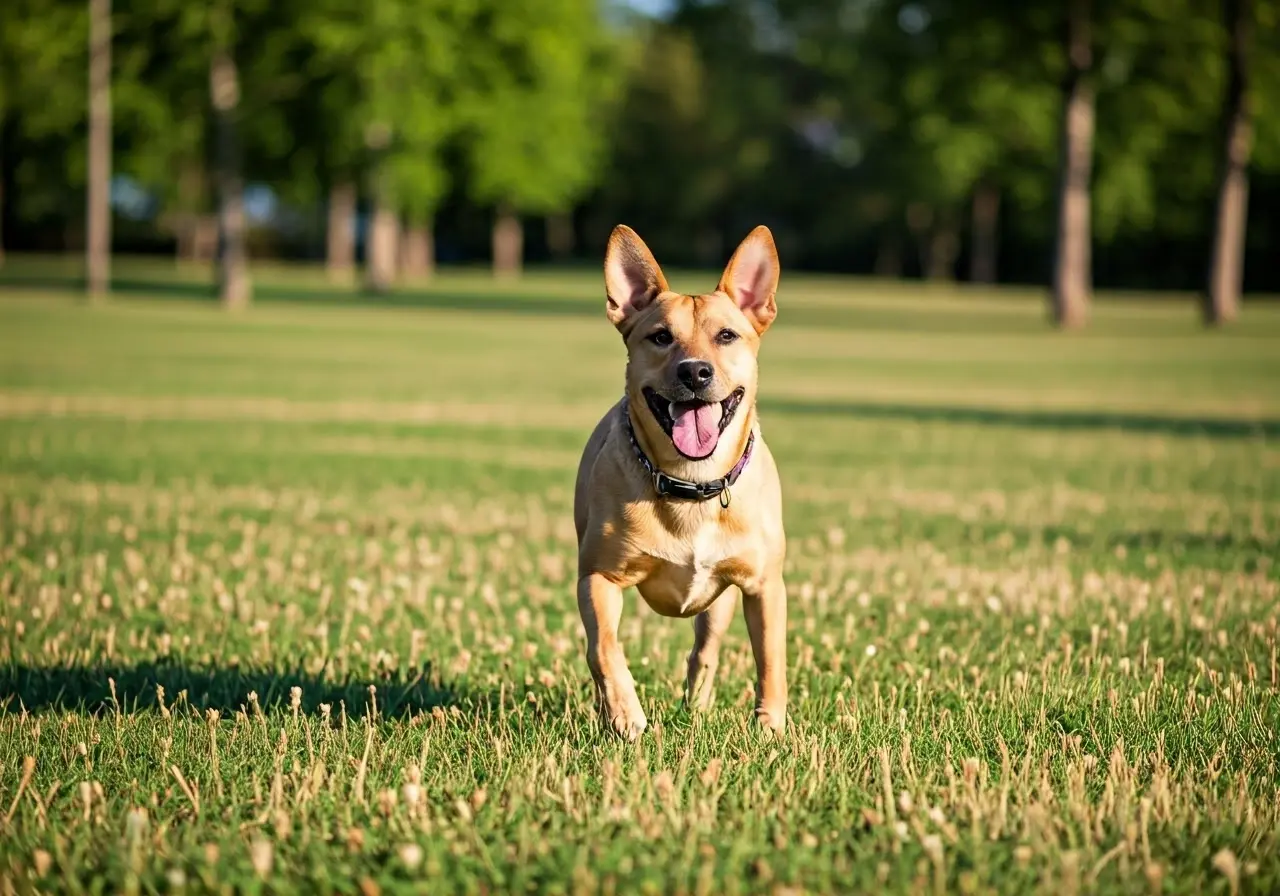Bringing a dog into your family is a rewarding experience, filled with joy, companionship, and sometimes a few challenges along the way. One of the most effective ways to create a harmonious relationship with your furry friend is through family dog training. This process not only teaches your dog good behavior but also strengthens the connection between the entire family and your pet. Let’s dive into how family dog training can enhance these bonds.
Understanding the Benefits of Family Dog Training
Family dog training offers numerous benefits beyond simply teaching commands. It provides a structured environment for your pet to learn and grow, promoting good behavior. Moreover, it serves as an excellent opportunity for family members to work together towards a shared goal, enhancing their bond with the pet. This collaborative effort in training helps to build trust and cooperation, not just between humans and dogs, but among family members as well. Each training session can become a family event, a time when everyone gathers with one purpose: to teach and bond with their dog. This mutual goal strengthens family ties, as each member contributes to the dog’s development and success, celebrating small victories along the way.
The impact of a well-trained family dog extends beyond the home. A dog that responds well to commands and is comfortable in different environments is more likely to integrate smoothly into community settings. This opens opportunities for more enriching experiences, including outings to parks, community events, or simply a walk around the block. As the dog adapts to varied situations, the family as a whole also learns adaptability, patience, and the joy of shared achievements. These combined experiences not only enrich the dog’s life but also provide the family with countless memories and moments of connection.
Moreover, involving all family members in the training process brings harmony to the household. Everyone is on the same page regarding expectations and reinforcement techniques, reducing confusion for your pet. Consistency is key, and when all members know the commands being taught, they can work together to reinforce positive behavior outside of training sessions. This unity ensures that the dog does not receive mixed signals, which could otherwise counteract training efforts. Family dog training, therefore, acts as a catalyst for improving communication and collaboration among family members, creating a unified approach to pet care and education.
Creating a Positive Training Environment
Ensuring that the training environment is positive and supportive is crucial for success. Family members should use consistent commands and rewards, creating a sense of security and confidence for the dog. This consistency not only aids in effective learning but also builds trust between the pet and family. Establishing a regular routine with scheduled training sessions helps the dog understand expectations and learning speeds up when there is familiarity and structure. Tailoring the setting, whether indoors or outdoors, to minimize distractions and maximize focus is essential. By observing how the dog reacts in different environments, families can adapt strategies to suit their specific pet, fostering a space where dogs feel safe to explore new behaviors.
Furthermore, incorporating family dog training techniques that encourage positive reinforcement can significantly enhance the learning experience. Leveraging treats, praise, and play as incentives not only motivates the dog but also makes training enjoyable for everyone involved. The atmosphere of positivity extends beyond the training sessions and permeates family interactions, reinforcing bonds and creating a joyful and supportive home environment. Positive reinforcement helps establish a learning framework where the dog eagerly participates, understanding that following commands leads to rewards. This method increases engagement and reduces stress associated with training, ensuring a harmonious process for both humans and pets.
Another aspect to consider when creating a positive training environment is the emotional connection fostered through family activities. Training should not just be task-oriented but also fun and bonding, encouraging family members to interact and connect with their pet. Celebrating milestones, no matter how small, with affection and acknowledgment strengthens the dog’s confidence and reinforces the love and appreciation felt within the family unit. These shared victories promote a sense of accomplishment, enhancing the overall experience and deepening the bonds formed. Ultimately, family dog training becomes a relationship-building exercise, transforming challenges into stepping stones for greater intimacy and understanding between pets and their families.
Involving Everyone in the Training Process
Involving all family members in dog training can be a fun, inclusive, and rewarding activity. Each person can play a role, from giving commands to offering treats, making the dog responsive to everyone. This unified approach fosters a strong, collective bond with the pet. When everyone in the household participates, it creates a shared language and understanding that spans both human and canine members. Assigning specific commands or tasks to different family members can help the dog learn faster and understand dynamics better, as it associates various cues with specific people.
Moreover, having multiple people involved in the training process helps distribute responsibilities and fosters unity in achieving common goals as highlighted. This shared endeavor turns training into a communal effort, where everyone’s contribution is valuable and necessary for the dog’s progress. It helps eliminate confusion that can arise when only one person is involved in training, as the dog sees all family members as authoritative and consistent sources of direction. By collectively establishing consistent rules and commands throughout the household, the family ensures that the dog receives uniform guidance and reinforcement. This cohesion is crucial in preventing mixed signals that might hinder the learning process and instead promotes a stable and structured environment conducive to learning.
Family members can also support one another in overcoming any training-related challenges, providing encouragement and shared insights. By working together, they can more effectively troubleshoot when a particular behavior proves difficult to change or when the dog is not responding as expected. This collective problem-solving method enhances the training process, making it more efficient and enjoyable. The mutual support and teamwork also enrich relationships among family members, as they deepen their understanding of each other’s strengths and perspectives. While some members might find success with certain techniques over others, learning from each other leads to a richer training experience that benefits everyone involved, including the dog.
Overcoming Common Training Challenges Together
Training a dog inevitably comes with challenges, whether it’s a stubborn behavior or a misunderstanding of commands. By tackling these challenges together, families reinforce their team spirit and strengthen their resolve, creating a more cohesive and supportive environment for their dog. An important step in overcoming these hurdles is maintaining patience and practice. Dogs may not learn new behaviors overnight, and sometimes frustration can escalate if progress is slower than anticipated. By approaching each challenge with an open mind and a willingness to adjust strategies, families can help their pets learn at their own pace without pressure.
When challenges arise, it’s also helpful to seek expert guidance. Professional trainers offer insights into dog behavior and effective techniques to encourage desired changes. They can provide customized advice and support families in adapting their training approach to suit their dog’s unique needs, ensuring a more seamless learning process. Employing a trainer can be particularly beneficial when facing persistent issues that require an outside perspective to resolve. Trainers also reinforce the importance of consistency in training, an essential factor in overcoming obstacles. By engaging with experts, families can acquire new skills and confidence that strengthen their bonds with their pet, ensuring long-term success.
Another approach to overcoming training challenges involves recognizing the power of perseverance. Training is a continuous learning journey that requires dedication and adaptability. Keeping communication open among family members about any difficulties encountered or progress made allows everyone to adjust their methods and goals accordingly. It is crucial to celebrate every small achievement, as this helps maintain motivation and positivity throughout the training process. Moreover, the act of overcoming a difficult challenge together not only deepens familial relationships but also enhances the trust and connection between the family and their pet. Challenges become opportunities for growth and transformation, solidifying the bond further.
At times, reframing challenges can be beneficial. Instead of viewing training difficulties as failures, they should be seen as part of the learning curve that accompanies pet ownership. Every dog and family are unique, and finding the right strategies may require patience and experimentation. By maintaining a positive attitude, families can transform potential setbacks into valuable learning experiences. The process of tackling obstacles together strengthens the family’s unity and resilience, fostering a culture of empathy and mutual support. Ultimately, the success lies in creating a thriving environment where the whole family, including the furry members, feel cherished and understood, reinforcing the commitment to continual learning and growth.
Celebrating Progress and Building Trust
Acknowledging and celebrating small victories during training goes a long way. Recognizing progress not only motivates the dog but also reinforces the trust and bond between the pet and each family member. Celebrations can be as simple as extra playtime or a favorite treat, enhancing the joy of learning together. This positive reinforcement cultivates a sense of accomplishment within the family and encourages consistent progress. When family members actively acknowledge and reward their dog’s achievements, it helps to build their confidence and enthusiasm for learning new skills. This mutual recognition and appreciation reinforce the relationship between humans and pets, fostering a supportive and loving environment.
Trust is a foundational element of any strong relationship, and training provides an excellent opportunity to establish and nurture this trust. As dogs successfully learn new commands and behaviors, they gradually develop confidence in themselves and their handlers. This trust is built over time through consistent, positive experiences that affirm both the dog’s and family’s resilience and dedication. By embracing each stage of development and growth, families can build lasting bonds that enhance overall wellbeing. The act of training isn’t just about shaping behavior—it’s a journey of shared experiences that unfold into a lifelong partnership rooted in trust and respect.
Furthermore, celebrating progress encourages families to remain patient and persistent, even when setbacks occur. It is crucial to remember that each dog’s journey is unique, and learning rates may vary. By keeping the focus on positive outcomes and the strides made, families can sustain momentum and motivation. This sense of accomplishment reinforces the concept that training is a shared goal, one that connects every family member to the collective success and happiness of their pet. Through this process, individuals learn to appreciate effort and growth, fostering a mindset that values expansion and empathy. Training becomes a joyful, collaborative adventure, allowing everyone to evolve naturally alongside their beloved canine companion.
Ultimately, the shared journey provided by family dog training offers a plethora of enriching moments, from enduring joy to heartfelt gratitude. By cherishing each bit of progress and understanding the significance of trust and togetherness, families can cultivate an environment where their bond with their dog flourishes. Celebrating successes and learning from challenges reinforce the family dynamic, turning training into not just instruction but a holistic experience that nurtures love and companionship. These moments, both big and small, form the tapestry of family experiences that create a special relationship with their pet, leading to a harmonious and fulfilling life with their four-legged friend.
Strengthening Bonds Through Dog Training
Family dog training is more than just teaching your pet commands; it is about fostering a deep and lasting bond that benefits everyone involved. As you embark on this journey, embrace the moments of learning, play, and connection, knowing that each step brings you and your family closer to your four-legged friend. The time invested in understanding and communicating with your dog will ultimately lead to a happier home and a more enriching relationship with your pet. Visit Focused Dog Training to explore our programs to build an even stronger bond with your pet.


